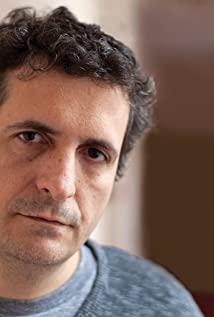As a movie focusing on middle-class nail households, [Aquarius] is not a masterpiece that explores the serious problems of social reality. In the city of Recife, a drain separates the rich and the poor. Clara, a retired music critic living in the rich area, only visits the servants who clean and cook for her. She would go to the end of the drain. As the last nail-biter left behind in the apartment, the blame that Clara faced was not that the real estate developer dared to confront her head-on and forcibly intervene in the demolition. Whether it is noise disturbing people, burning mattresses, or releasing termites, moth-eaten the foundation of the house, the shameless real estate developers only dare to operate in the dark, but when facing Clara, they can only wear a businessman's unique ingratiating smile. As for the real estate agent, who used money to lure Clara's relatives, friends, and even former neighbors to attack her and ask her to move out of the apartment, they were all soft measures. Removed the plot and drama that all American movies value, the real estate businessman did not attack Clara head-on. On the contrary, Clara, who was born in the middle class, always attacked the real estate business head-on. She not only treats businessmen, but whenever she encounters any unfair treatment or personal attack, she will fight back strongly. In this wrestling, Clara has never been at a disadvantage. Compared with the slums at the other end of the sewage pipes, in the whole of Recife where real estate developers do not follow the regulations and legal procedures, Clara, the story of an independent middle-class woman, has always belonged to one end of this social fault. Far from reaching the other shore.
Therefore, [Aquarius] is not about the story in this residential area called "Aquarius", it is different from [The Sound of the House], it is a life inspection that belongs to Clara, a woman. "Growing gracefully" summarizes Clara's current life situation. At the age of having grandchildren, she lost many things - such as youth, husband and right breast, but she also had many things - children, grandchildren, economic strength and social connections. Clara's memories are inserted from time to time in the film, each of which urges her to become stronger and more persistent, as her daughter said, she is stubborn, sometimes like an old man, sometimes like a child. Mendoza once mentioned that Clara is his incarnation in the film, but the character's character is built based on the image of the powerful women around him. This character carries his personal thinking about life. As well as reflections on the entire vast Brazilian society, and through the modern meaning of "independent women", Mendoza's own protests. For example, Clara's single breast is his ridicule to the male group who wears colored glasses to know people, dark skin is his counterattack against discrimination against people of color, Clara opposes demolition to protect the house that witnesses her life and growth, and more Shows Mendoza's indignation at the ruthless changes in modern society. Taking a woman (individual life) as the starting point to realize the group ridicule of all beings in society, although the strength of criticism is scattered, but fortunately, the role of Clara is very successful, and the film's landing point is very solid. She is tough and bright, and if fate gives her two slaps, she will return a basket of fate.
In addition, Mendoza created the details of Clara's living room with a simple and petty lifestyle - music records, hammocks in the living room, posters of [Barry Lyndon], in this house where life situations and memories overlap anyone would understand Clara's stubbornness not to move. This also reflects the charm of the movie - no matter how difficult the reality is, life always has to be emotional.
(Originally published in Issue 719 of "Watching Movies Magazine")
View more about Aquarius reviews











